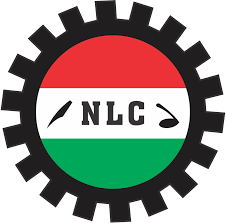community
Stakeholders Canvass Support for FCT Rural Women

Some women leaders and entrepreneurs have canvassed for more empowerment and support initiatives to develop rural women in the Federal Capital Territory.
The women made the call in separate interviews on Monday in Abuja against the backdrop of the 2023 International Day for the Rural Woman.
NAN reports that the UN sets aside Oct.
15 annually to celebrate the rural woman whom it said contributes about 40 per cent of agricultural labour in developing nations.NAN also reports that the theme of the 2023 international day is “Rural Women: Cultivating Good Food for All.’’
Mrs Afiniki Dauda, an entrepreneur and a market leader in Guto community, Bwari District, said that the government and other organisations need to put more efforts to develop women at the grassroots.
According to her, lack of access to finance and other services had been common obstacles for rural women in Nigeria, in spite of their efforts to be productive.
She said: “Gender inequalities, discrimination and social norms have always put women in a less advantage to access agricultural extension service.
“This also happens when they try to access the bigger markets or land and formal financial services in spite their high participation in the agriculture sector in the society.
“Rural women still find it difficult to access loans, insurance on crops, livestock and other productive resources, making it difficult for them to engage in entrepreneurship.
“For me, these limitations are worsened by lack of finance and management knowledge, business literacy and other empowerment strategies.
“This is why government at all levels and private organisations need to intensify efforts to support them if we really want to boost food production and bring about rural development in the process’’.
Dauda added that stakeholders needed to work together with women groups at the rural level to hold regular empowerment workshops that would enrich productivity.
Similarly, Mrs Grace Ojo, Programme Manager, Ruth Foundation Network, an NGO, said that government and local professional organisations play vital role in rural development.
Ojo said that, although the efforts by both government and other organisations have been relentless in supporting rural women, there has been limited progress in addressing the challenges faced by rural women.
“There is a need to reinforce capacities of rural women to increase their income and access to inputs, knowledge, market and decent work.
“We need to also strengthen institutional capacity to implement laws that will help facilitate access to financial services, as well as advance women’s rights to land ownership.
“We must engage them on the go, so as to drive at solving their immediate challenges and not discourage them at their best performance,’’ she said.
Ojo said the rural woman remained an important sector of the society and needed all support to meet up in every aspect of life, especially since they contribute to the economy in various trades.
Mrs Maryamu Barnabas, a women and youth activist also opined that issues affecting the elderly women at the grassroots should also be put into consideration.
Barnabas said that due to the rapid increase in population, there was the need for a health management service for the elderly.
She said: “Rural elderly women experience a low quality of life due to financial difficulties, psychosocial isolation and lack of general support.
“So, in all our schedules towards promoting the rural woman and her trade or business, access to healthcare should be paramount as well. It is indeed a vital support system.
“We all can only work when we are alive and in good health condition’’. (NAN)
community
OnTiv Professionals Association Condemns Claims on Yelwata by ALago Union
By David Torough, Abuja
The OnTiv Professionals Association (OPA), Abuja has described the statement credited to the Alago Ikweyi Gbayi Development Union (AIGDU) calling for land demarcation of Tiv ancestral homes, along Nasarawa and Benue boarder communities in the wake of the brutal attack and killings of innocent Benue citizens as insensitive, wicked and devoid of every sense of humanity and decency.
In a statement in Abuja, OPA President, Engr Abraham Aku regretted that, while the Benue community, the entire country and the world are yet to recover from the devastating effect and the pains over the June 13 Yelwata massacre by the armed Fulani invaders, the Alago people of Nasarawa State have sadly concerned themselves to claims of ownership of the bleeding community.
Aku said that the OPA read with deep concern and disappointment, the press release issued by the Alago Ikweyi Gbayi Development Union (AIGDU) in response to the remarks made by His Royal Majesty, the Tor Tiv, Prof. James Ayatse, during the condolence visit of President Bola Ahmed Tinubu to Benue State.
“We find it necessary to strongly respond to the misrepresentations and historical inaccuracies promoted in the said press release. The statement is a deliberate attempt to distort the identity, heritage, and territorial realities of the Tiv people in and around Yelwata.
“To set the historical facts clear, Yelwata, both in administrative record and practical governance, is firmly located in Guma Local Government Area of Benue State therefore, their claims that Yelwata is in Keana Local Government Area of Nasarawa State is historically and administratively incorrect.
“The community has functioned as such for decades, under successive civilian and military administrations, with Benue State government providing infrastructural services, conducting elections, and maintaining civil administration in the area.
“It is equally misleading to suggest that the Tiv are “latecomers” to Yelwata. The Historical Settlement Patterns shows that, the Tiv people have historically settled and cultivated lands across the Benue Valley, including Yelwata, long before modern administrative boundaries were imposed.
“Their presence is not merely residential but rooted in generations of ancestral occupation, farming, and social development.
“Moreover, the Tiv are recognized as indigenous peoples in parts of Nasarawa State, populating local government areas of Awe, Obi, Doma, Keana, and Lafia as well as
“Nigeria is a multi-ethnic society where communities are often plural in composition so,r their claims of ownership and indigenous rights that Yelwata is an “Alago village” because a few members of the Alago or Gwandara ethnic groups are present there is not a sound basis for such sweeping conclusions.
“What matters is legal and administrative jurisdiction, historical occupation, and the will of the people, all of which support Yelwata’s standing as part of Guma LGA in Benue State”.
According to Engr Aku, the reference to Google Maps as evidence that Yelwata location is captured in Nasarawa State is flawed and simplistic.
“Google Maps are not considered as legal authority for boundary demarcation. The authoritative sources for inter-state boundaries in Nigeria remain the National Boundary Commission (NBC), official gazettes, and constitutional/legal instruments and none of these place Yelwata in Nasarawa State.
“Rather than inflame ethnic sentiments or attempt to rewrite geography, we call on the AIGDU and other stakeholders to prioritize peaceful coexistence, justice, and mutual respect. Efforts to settle border issues must be guided by truth, not ethnic domination or historical revisionism.
“We call on the Nasarawa and Benue State Governments, the National Boundary Commission, and the Federal Government of Nigeria to accelerate efforts to resolve boundary disputes in a just and transparent manner.
“We reaffirm our support for the Tor Tiv’s position, which was factual, dignified, and reflective of the pain and reality of the Tiv people in Yelwata and its environs.Let the truth be told and peace be pursued'” the statement partly read.
| ReplyReply allForwardAdd reaction |
community
Democracy: Sen. Abiru Urges Support for Tinubu

Sen. Mukhail Abiru (APC -Lagos) has urged continued support and understanding for President Bola Tinubu as he implements bold policy decisions aimed at repositioning the nation for sustainable growth.
This is contained in his democracy day message by his Media Aide, Mr Enitan Olukotun on Thursday in Ikorodu.
Abiru, who represents Lagos-East, urged Nigerians not to loose hope but to continue to uphold the core values of democracy and seek constructive ways to consolidate the gains made over the years.
Abiru, who is also the chairman, senate Committee on Banking, Insurance and Other Financial Institutions, stated that the democracy day called for reflection and appreciation for how far Nigeria had come as a democratic nation.
“It has been 26 years since Nigeria began its journey under this current democratic dispensation.
“Though the path has not been without challenges, we have every reason to celebrate the resilience, growth, and promise that our democracy represents.
“As we navigate this critical period in our nation’s history, I call for continued support and understanding for our dear President as he implements bold policy decisions aimed at repositioning our nation for sustainable growth.
Though the sacrifices may be difficult, they are necessary, and I am glad that the rewards have started manifesting across all sectors.
” I pay special tribute to the resilience, courage, and determination of the Nigerian people,” he said.(NAN)
community
Sallah Was Good for Our Business—FCT Beauticians

Beauticians, hairdressers, and grooming specialists across the Federal Capital Territory (FCT) said they recorded massive patronage during the just-celebrated Eid-el-Kabir festival.
During a visit to various salons and beauty parlors on Tuesday, beauticians said they had a huge customer turnout during the festive period.
Beauty professionals expressed immense satisfaction with the season’s turnout, describing it as one of the most rewarding times of the year.
Mrs Sahadatu Musa, a hairstylist in Nyanyan, shared her delight over the brisk business, noting the direct financial impact.
“I’m so happy. Business was great.
“What I’ve earned in the festive period will cover my children’s school fees and even new clothes for them.
It’s a real relief,” she said.She added that service rates typically rose during the festive season due to high demand.
“I handled more than 50 clients in a day during the festive period and as the day was not even over yet, many customers still came.
“Some clients opted for home services to beat the long queues at salons.
“It cost more, N6,000 instead of the usual N4,000 but it was worth it,” she said.
Mr Abubakar Abdellah, a henna Artist in Lugbe, also reported strong demand, noting that festive designs were particularly popular.
“Red henna went for N4,000, while the black variety costs N8,000.”
Barbers also experienced a surge in patronage.
Mr Kabiru Umar, a barber in Bwari, noted that he had to expand both his services and workforce to meet the growing demand.”
“Parents came in with their kids for haircuts, beard trims, and general grooming.
“We even added services like manicures, pedicures, and face massages.
“To keep up, I upgraded equipment, restocked supplies, and hired more hands,” he said.
For tailors, the period was equally hectic.
Zainab Abubakar, a tailor in Jikwoyi, who specialises in women’s wear, described it as the busiest and most profitable season.
“Orders started coming in two to three weeks before Sallah, but the real rush hit in the final days.
“Women wanted abayas made from lace, chiffon, or crepe, modest but stylish.
“I even had to turn down some orders. Time management was crucial or you would end up disappointing people,” she said.
From makeup artists to barbers, stylists, and tailors, professionals across the FCT said the 2025 Eid-el-Kabir was not only spiritually uplifting but also financially and professionally rewarding, marking a truly successful and fulfilling holiday season.(NAN)



























